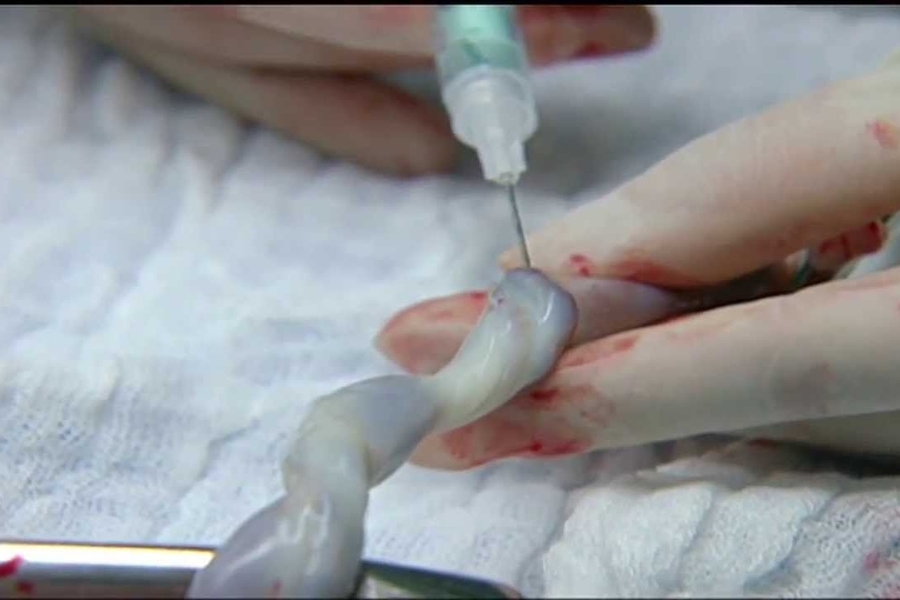
Preserving Umbilical Cord Blood
26 Apr 2019 | 4 min Read
vani
Author | 82 Articles
What is Umbilical Cord Blood?
Umbilical Cord Blood is the blood that is left behind in the umbilical cord and placenta. Umbilical cord connects Mother and Baby when the baby is in womb for transfer of nutrition and food from Mother to Baby. This blood is rich in stem cells which can be used to treat blood or immune related diseases in babies after birth. It is also believed that these stem cells can have a match with baby’s immediate siblings or parents and can be used to treat their diseases too.
What is Cord Blood Banking?
Cord Blood Banking is the process of preserving cord blood or stem cells from this blood in private cord banks or public cord banks. Private Cord Blood Banks charge a fee for storage which is generally an annual payment and it is like a personal storage. Nobody can avail your baby’s stem cells except you. A Public Cord Blood Bank is a bank which also charges a fee for storage but here the stem cells can be availed by anyone for a certain charge.There is a third type of bank called donation bank which collects donated cord blood for a minimal or free of cost.
How is Umbilical Cord Blood collected?
Once the parents decide to store umbilical cord blood, a person from the cord blood bank will come and do the paper work and explain you the entire process. The day the mother goes in labor, the bank needs to be informed. A person from the bank will come to the hospital with his kit to collect the sample. As soon as the baby is born, the doctor will clamp the umbilical cord at two places about 10 inches apart and cut the cord separating mother and baby. He will then insert a needle and collect about 40 millilitres of baby’s cord blood and store it in a bag which he then seals and sends it to the bank for storage and further tests. The entire collection process is absolutely harmless for both mother and baby.
Pros of Storing Umbilical Cord Blood
The stem cells in Umbilical Cord blood have been found to have tremendous capacity to treat many blood and immune system related diseases.
Umbilical cord blood contains haematopoietic stem cells which are very similar to those found in the bone marrow. This can be used to create new red blood cells and cells for immune system.
Cord Blood also contains mesenchymal stromal cells which can be grown into fresh set of bones, cartilage and many different types of tissues and can benefit patients in many ways.
Stem Cell Transplant has been known to treat certain types of cancers.The stem cells are known to treat close to 80 diseases including anemia, orthopaedic issues and certain types of genetic metabolic disorders.
Cons of Storing Umbilical Cord Blood
Cord Blood banking costs are high. Private banks charge more than public banks. It is hence a very conservative decision for expecting parents. On the flip side you can also donate cord blood to a public bank for a minimal or no charge.
Traditional mindsets may not convince family members to store cord blood since this could mean storing your baby.
Many clinical trials are going on with Cord Blood or Stem Cells to find treatment solutions for many major life threatening diseases. Preserving Cord Blood is a very sensitive and thoughtful decision. It would really make sense to store if your family is known to have many serious health issues or life threatening diseases. However, it is an expensive affair and some people might call it a negative thinking. Well, the bottom line is, the rate at which killer diseases are affecting people, science needs to advance to cater to this alarming rate. Think wise, do your research, weigh your preferences and make the right choice.
Banner Image: CBC News
Also read: What happens to my baby just after birth?
A


Related Topics for you
Suggestions offered by doctors on BabyChakra are of advisory nature i.e., for educational and informational purposes only. Content posted on, created for, or compiled by BabyChakra is not intended or designed to replace your doctor's independent judgment about any symptom, condition, or the appropriateness or risks of a procedure or treatment for a given person.
